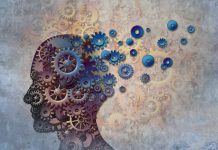Did someone ever tell you that you look like your dad or that you have your mom’s eyes? DNA molecules in every human cell carry the genetic instructions for these characteristics. Physical qualities such as eye, hair color, and height are passed down from parents to their offspring.
James Watson’s discovery of DNA in the 1950s shifted the focus of genetics to the molecule’s structure and its role in the transmission of physical features. The traits we are born with, such as eye and hair color, skills, and talents, are heavily influenced by our genes. Using at-home DNA testing, you may see how your genes affect your health, your family tree, and the traits you exhibit.
Due to advances in accuracy and cost, DNA testing services now provide more options than ever before. DNA testing has made it possible to trace ancestral lines, establish parentage, and even trace historical migrations. In addition, you can get reliable genetic testing results from top genetic testing companies.
What are Genes?
Genes are the essential elements that make up an organism’s hereditary makeup. Genes are the building blocks of heredity, consisting of DNA sequences passed down from parents to offspring. They consist of two separate components, one from each parent.
They store instructions for the creation of proteins that perform a specific biological function that induce the expression of a particular characteristic, such as the color of one’s hair or eyes. They are sequentially placed at designated positions on chromosomes in the nucleus of cells.
Skills and Talents Influenced by Your Genes
Aptitude and talent in various fields, such as intelligence, creativity, and athleticism, are attributed to genetic factors. For example, drawing, playing an instrument, or dancing may come more naturally to some people than to others. Similarly, genetic factors can influence traits like analytical and critical thinking, communication, and research skills.
-
Analytical Skills
From kindergarten to the conclusion of compulsory schooling at age 16, there is a strong genetic component to differences in students’ academic performance. Recent research in the UK suggests that hereditary characteristics may account for approximately 62 percent of the individual differences in academic success when it comes to GCSE results.
This type of academic achievement typically requires a considerable amount of analytical ability. Analytical skills are used to incorporate background knowledge into conclusions and interpret information. In addition, analytical thinking allows you to recognize and address complex challenges in a timely manner.
It helps gather information, settle on a course of action, and find answers to challenging problems. For example, using your analytical skill in the workplace demonstrates that you are a rounded person capable of making well-informed judgments.
-
Critical Thinking
In the same way, that physical qualities are passed down from one generation to the next, cognitive skills can also be inherited. Genes, taken as a whole, are responsible for more than half, or fifty percent, of the variances in cognitive function that exist between individuals.
In other words, some people may have superior critical thinking abilities compared to the general population. Thinking critically entails analyzing given circumstances, spotting problems, and developing workable solutions.
-
Communication Ability
Differences in intelligence, character, communication skills and psychological well-being are primarily the result of a person’s genetic makeup. Your genes can strongly influence your natural ability to communicate and interact with others.
Communication ability involves being able to send and receive information effectively. Communication can be in written, verbal, or nonverbal modes that are meaningful to others. People who are physically and mentally healthy usually have little trouble initiating conversations with others.
However, you might find communicating more challenging if you have a genetic disease known as Angelman syndrome. Angelman syndrome is a hereditary condition caused by problems with the ubiquitin protein ligase E3A (UBE3A) gene on chromosome 15.
People with it have trouble communicating with others due to their delayed developmental age, difficulties with speech and coordination, intellectual handicap, and even seizures.
-
Research Skills
Research skills refer to the capacity to search for, identify, extract, organize, assess, and use or present information that is pertinent to a given subject matter. Research skills incorporate various abilities that help gather accurate and reliable information on a topic.
The fact that you inherit cognitive function from your parents also indicates that you inherit their research skills. However, depending on their circumstances, people vary greatly in their research skills and other cognitive skills.
Environment Influences
There is little doubt that genetics play a significant role in shaping personality, skills, and conduct, but this does not minimize the impact on the environment. Who you are now is a mixed result of genetics, personal nurturing, and experience.



























